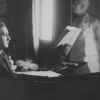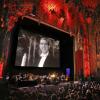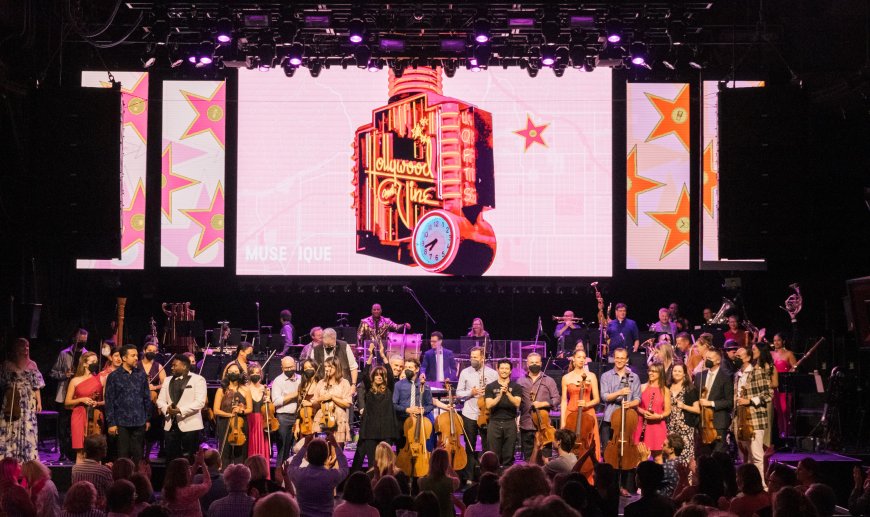
For years, Hollywood film composers complained of being disrespected by their classical colleagues outside the industry. This month’s offerings at the Wallis Annenberg Center for the Performing Arts in Beverly Hills show how much that paradigm has shifted. The venue’s May calendar features two separate programs, one from MUSE/IQUE and another coming up from the Scott Dunn Orchestra, that focus on the composers who landed in Tinseltown.
On Saturday, May 3, MUSE/IQUE offered an introductory tour called “Welcome to the Dream Factory.” It was conducted and narrated by the orchestra’s founding artistic director, Rachael Worby, and featured violinist Anne Akiko Meyers, vocalist Sy Smith, and keyboardist Alan Steinberger, who performed with an all-star jazz combo. The arrangements were by Steinberger, Rob Schaer, Jamey Tate, Paul Bateman, Brad Dechter, and Matt Rohde.
Co-sponsored by Classical California, the concert got off to a rollicking start with the elegant Smith singing “Hooray for Hollywood.”
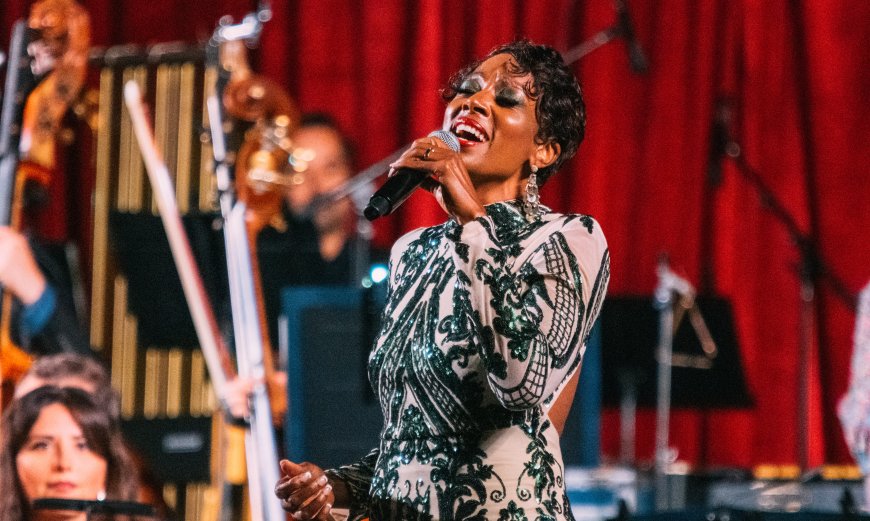
What followed was a 90-minute sampler of movie music. Accented by projections and a few short clips, the program began in the days of the “flickers,” with a sole piano playing in the dark. And while the first movie to feature an orchestral score was The Birth of a Nation (1915, with composer Joseph Carl Breil’s music performed live in the theaters of the day), Worby chose to highlight Charlie Chaplin’s early synchronized movie score for City Lights (1931). Next, from Chaplin’s Modern Times (1936), we heard “Smile,” the movie’s main theme, performed with an abundance of legato grace by Meyers.
Worby, though enthusiastic, mistakenly described the German actress Marlene Dietrich as arriving in Hollywood to avoid the rise of the Nazis. In fact, following the worldwide success of Josef von Sternberg’s The Blue Angel (1930), Dietrich and Sternberg were both offered lucrative contracts by Paramount Pictures. Nevertheless, mention of the film provided a good excuse for Smith to croon Friedrich Hollaender’s sultry hit song “Falling in Love Again.”
And as Worby rightly described, the first golden age of movie music is directly linked to the anti-Semitic policies of Nazi Germany, which ensured Jewish composers like Max Steiner, Erich Wolfgang Korngold, Miklós Rózsa, and Franz Waxman stayed in Hollywood, where they became mainstays of the major studio music departments.
With a projection of Vivian Leigh prancing through the colonnades of Tara (the O’Hara plantation), the orchestra soared through Steiner’s rhapsodic overture to Gone With the Wind, which did not, however, win the 1939 Academy Award for Best Original Score, losing out to The Wizard of Oz.
Worby might have given a nod to the orchestral music that Hollywood composers so freely stole from before she launched into Korngold’s full-blooded score for Captain Blood (1935), which is rooted in the style of Richard Strauss’s tone poems. Korngold, an eminent European composer who also played an important role in defining the movie soundtrack, arrived in Hollywood at the urging of director Max Reinhardt. All the same, Worby’s rendition of Captain Blood swashed and never buckled.
Meyers soloed in the famous lilting theme from Laura (1944), but the violinist was really able to cut loose from Hollywood frosting in her performance of Rózsa’s dynamically tense score for Alfred Hitchcock’s thriller Spellbound (1945).
The years following World War II saw the rise of film noir, exemplified in this concert by Billy Wilder’s Sunset Boulevard (1950). Worby led Waxman’s music with real intensity. The modern era was represented by Jerry Goldsmith’s “Universal Studios Fanfare” and John Williams’s ever-delightful “Flying Theme” from E.T. the Extra Terrestrial.
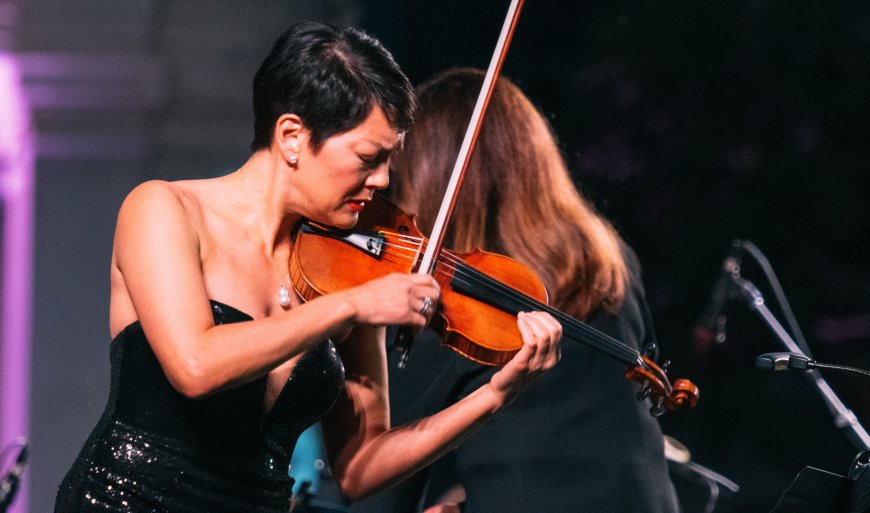
It all ended with Meyers, Smith, and the orchestra joyfully going “Over the Rainbow,” the celebrated Harold Arlen/E.Y. Harburg tune that won the 1939 Academy Award for Best Original Song.
And don’t miss MUSE/IQUE taking on the dark era of the Hollywood blacklist in a program called “The UnAmericans,” June 10–15.


